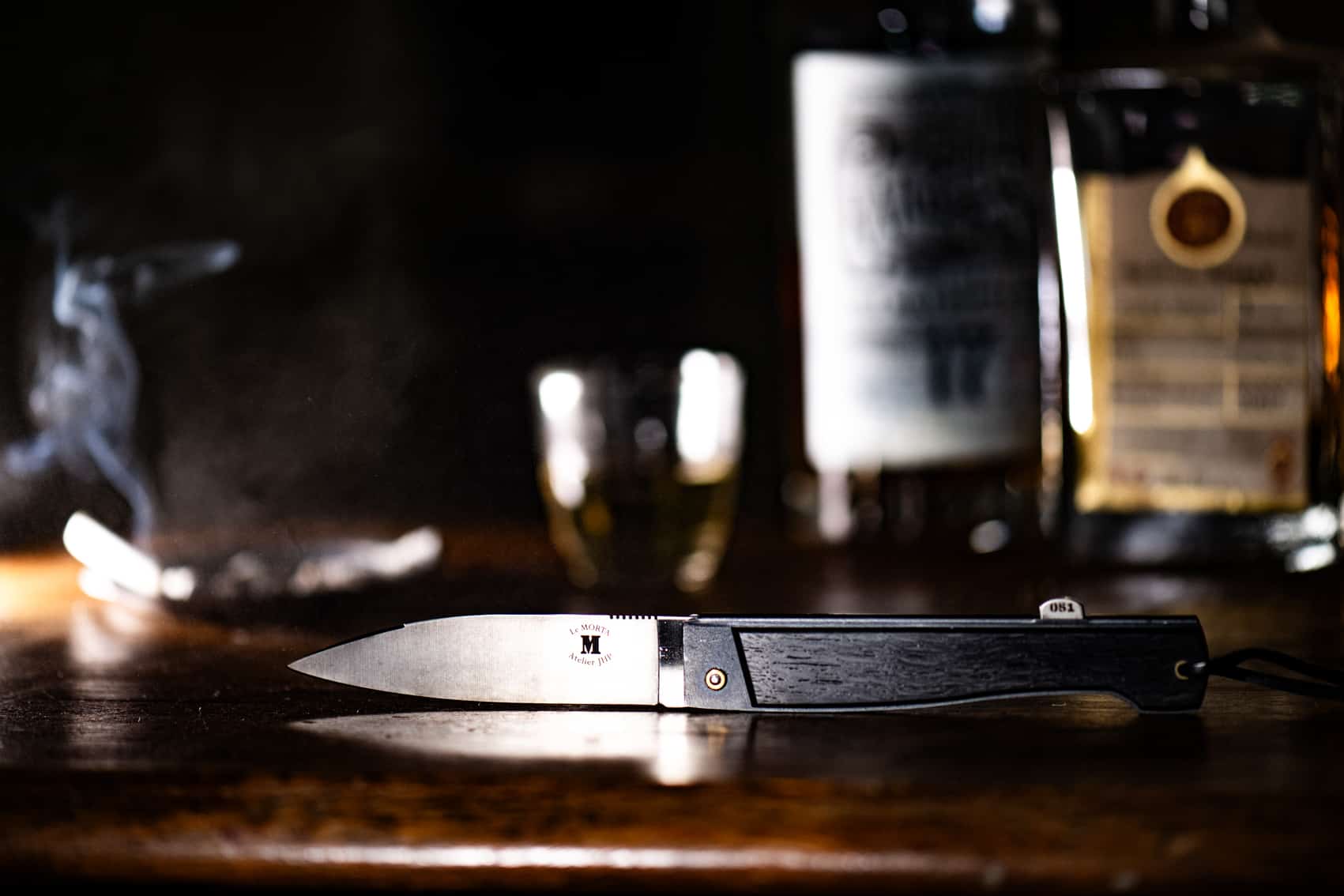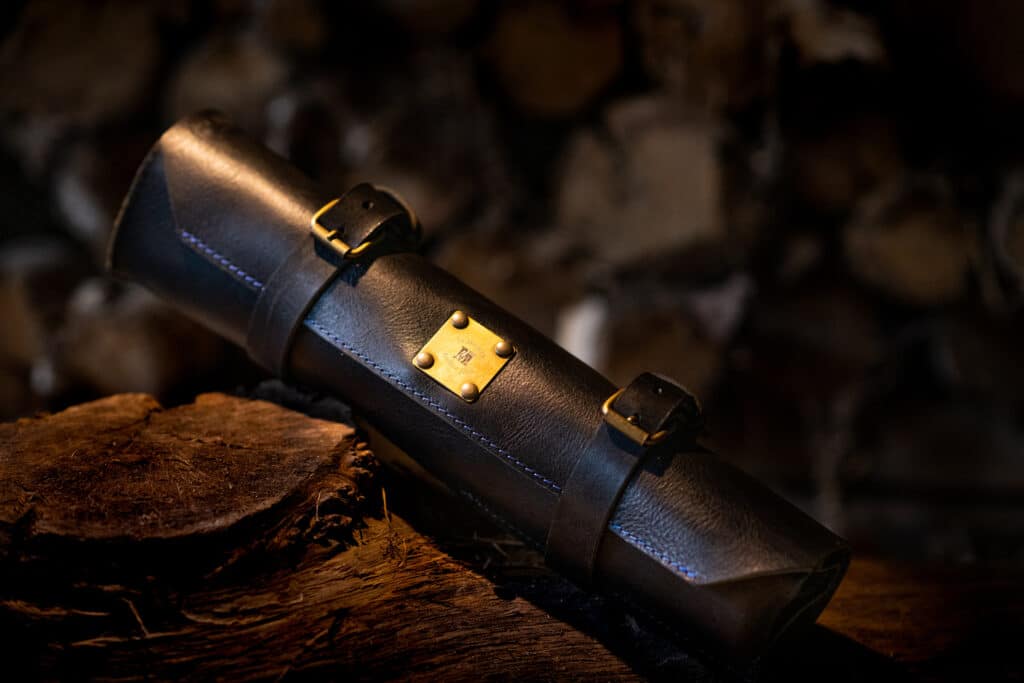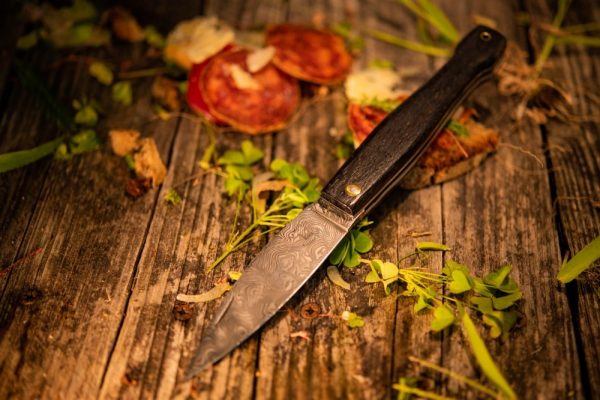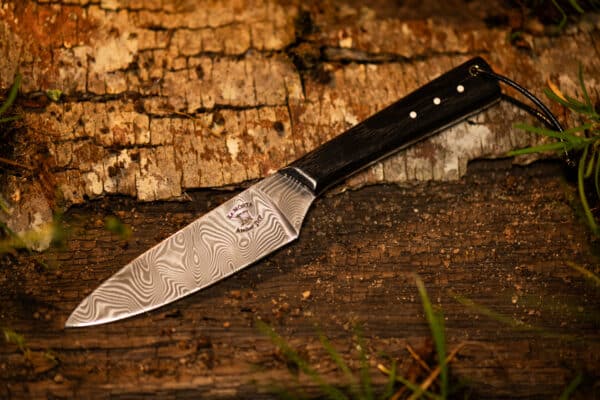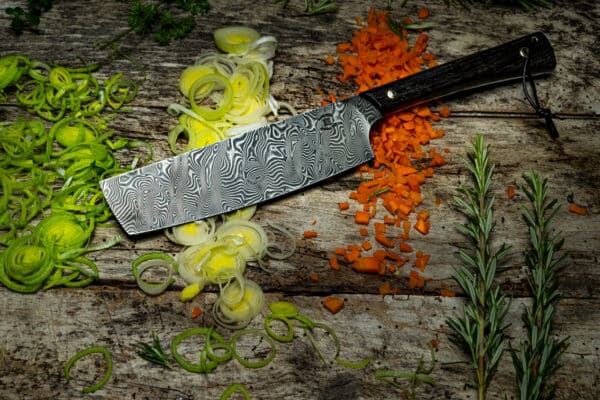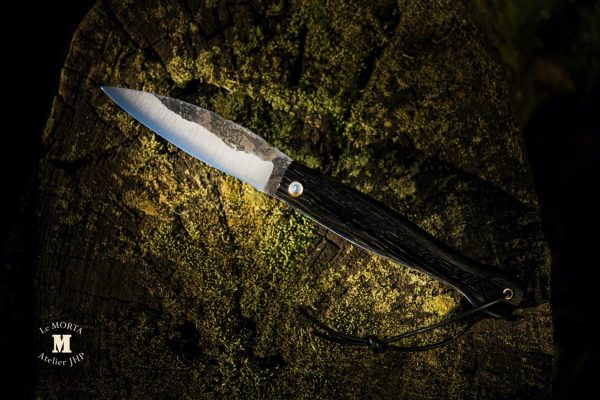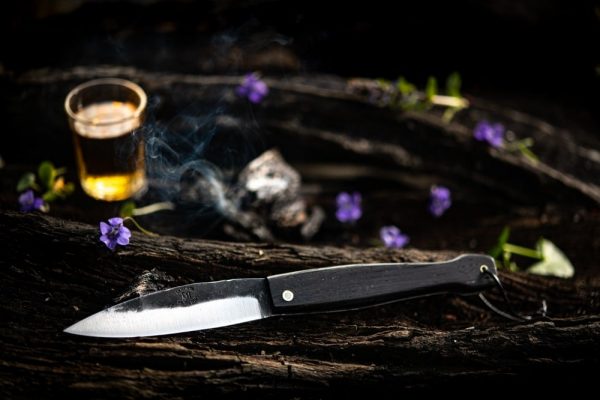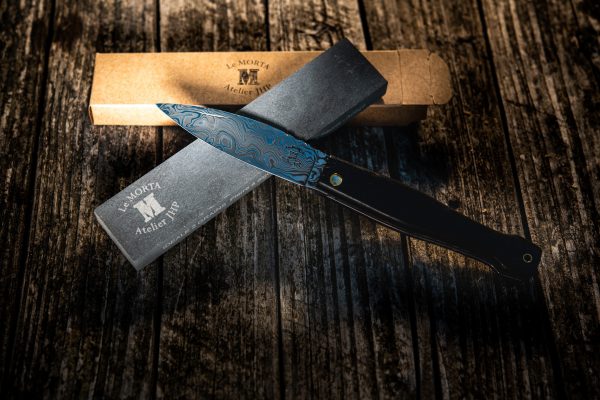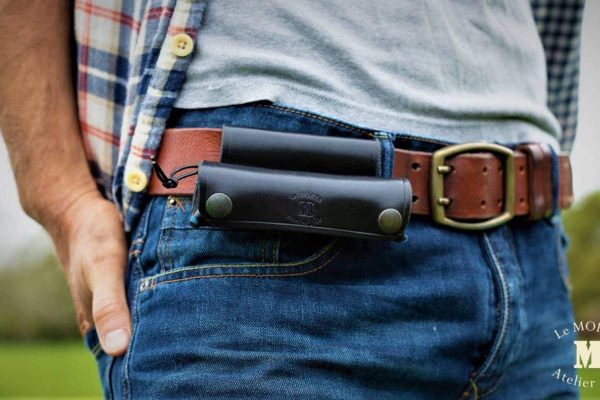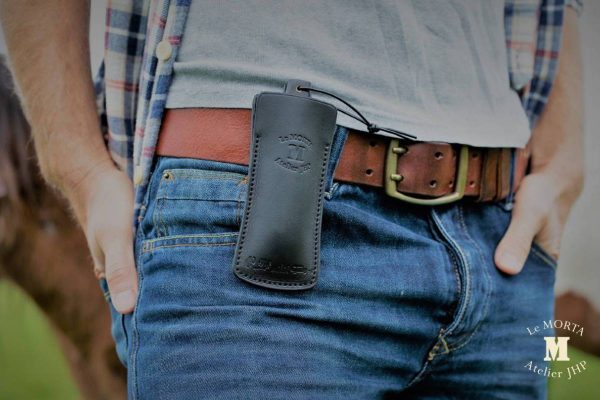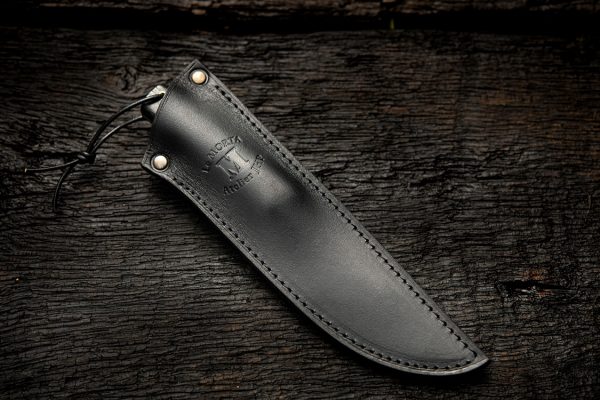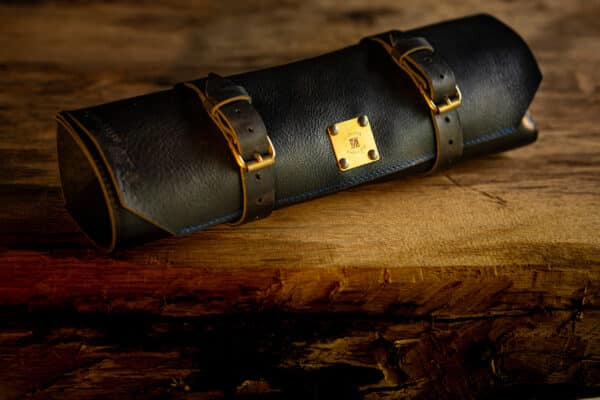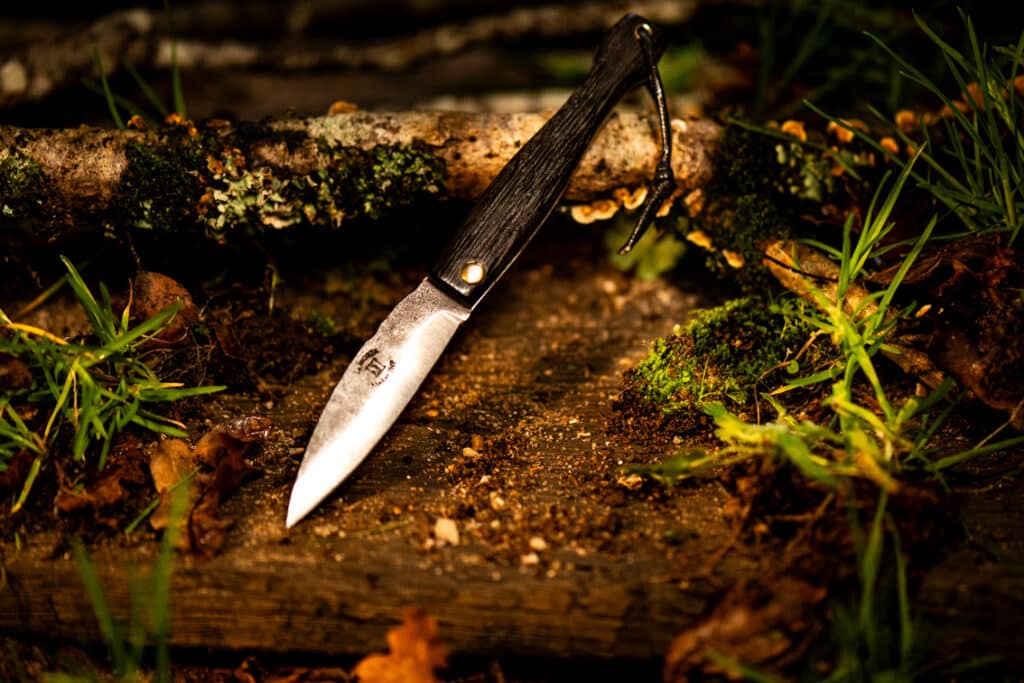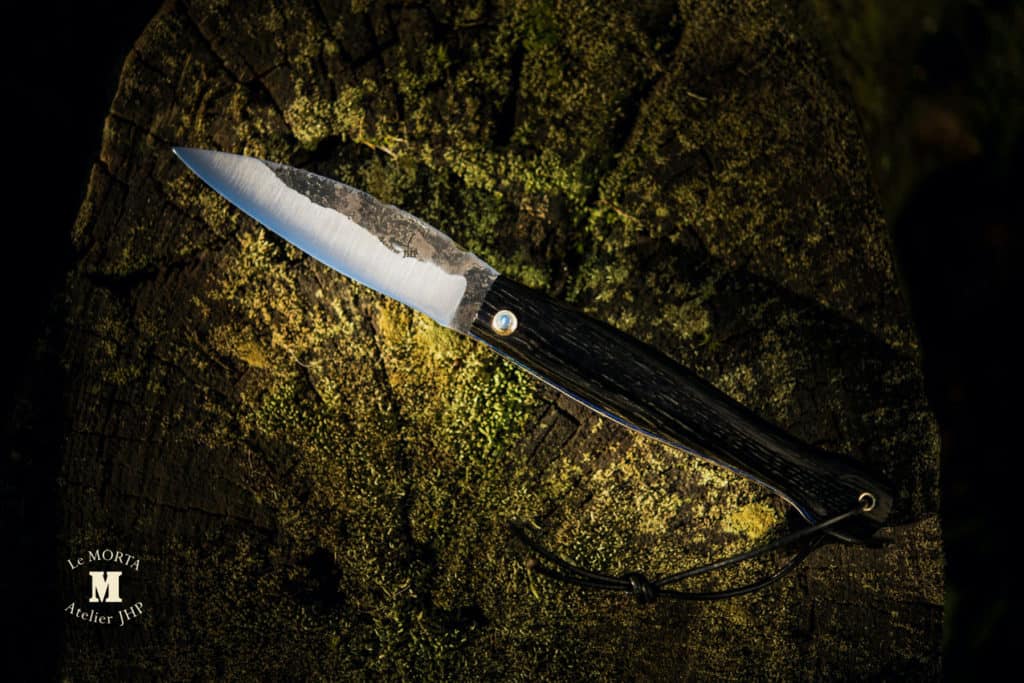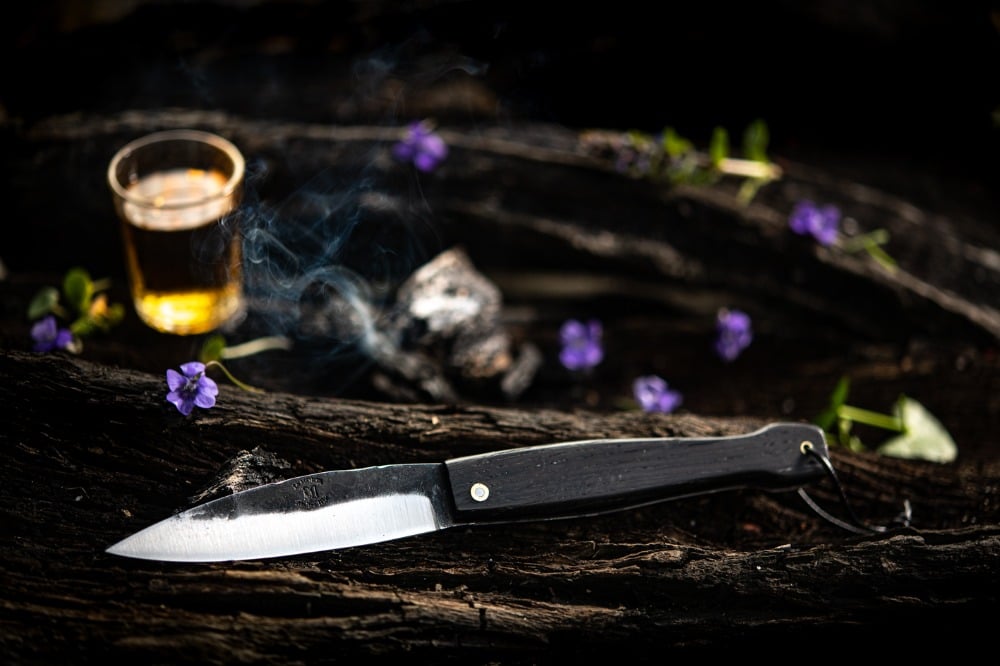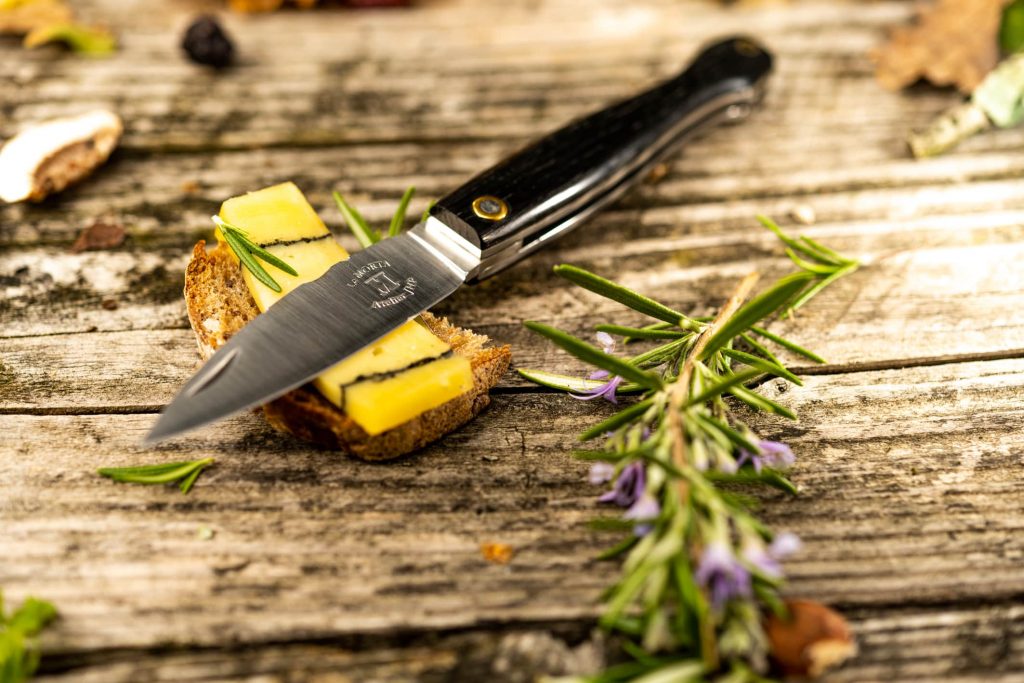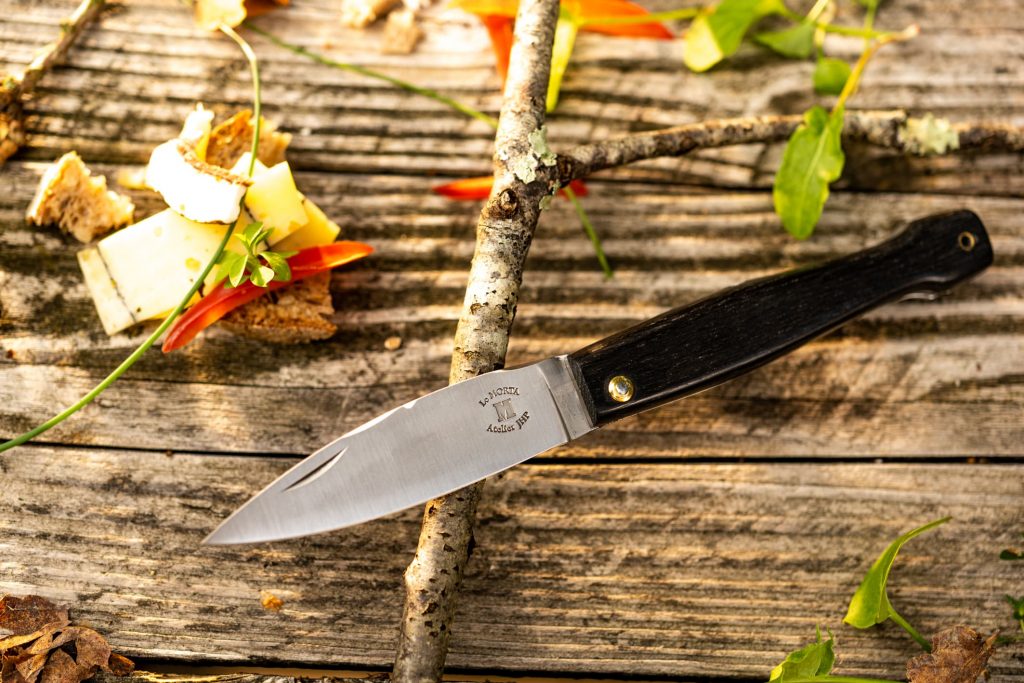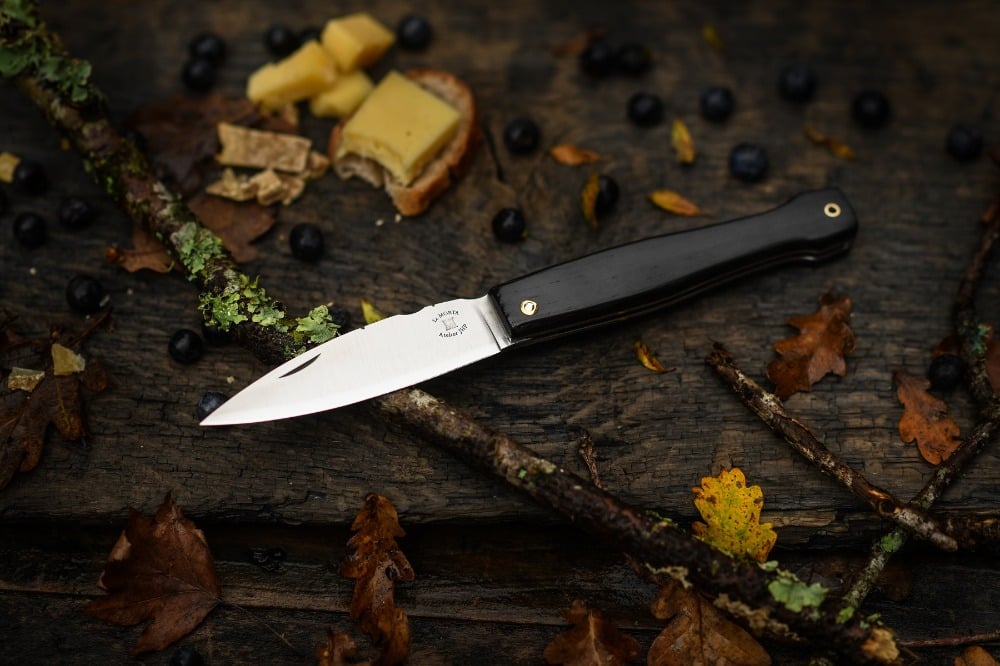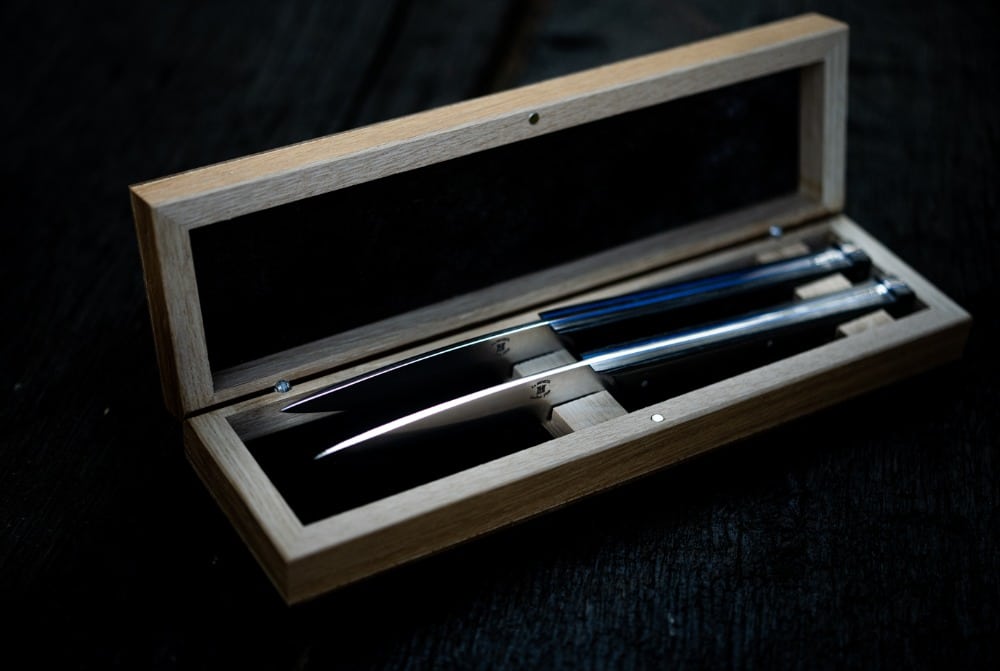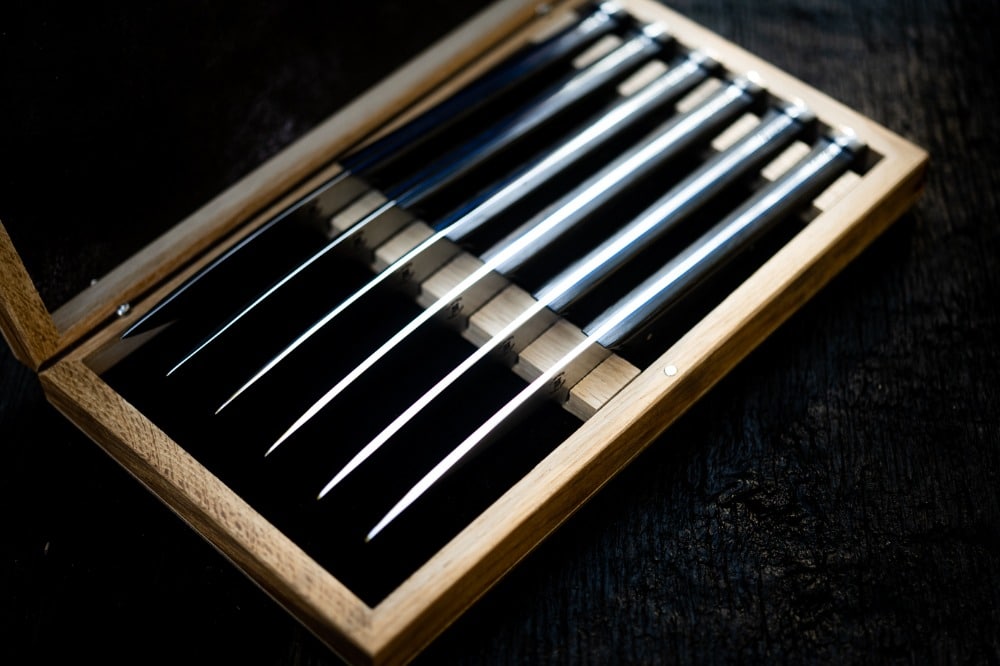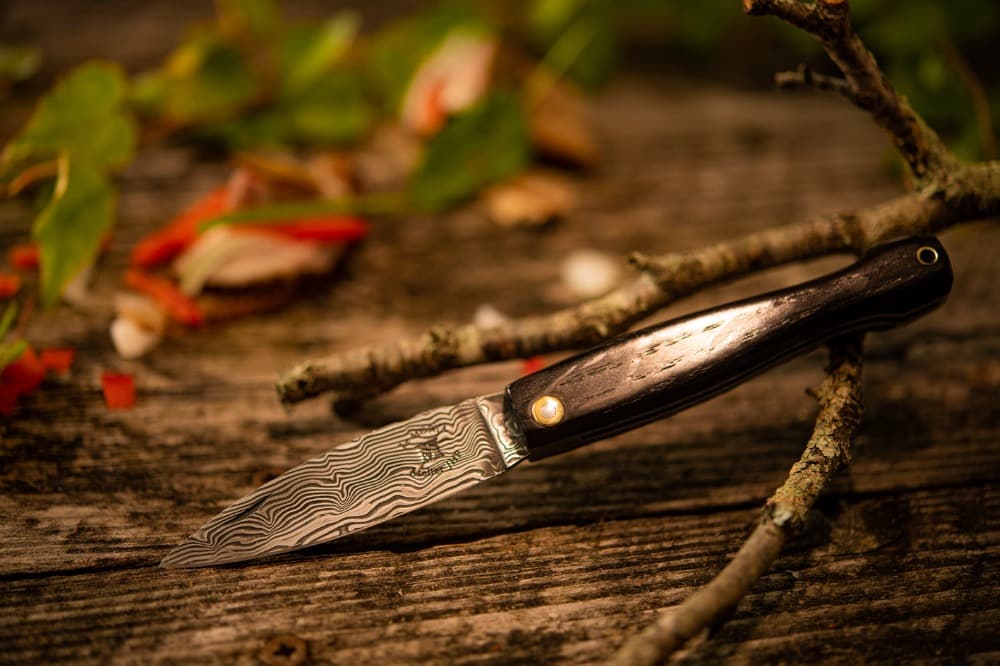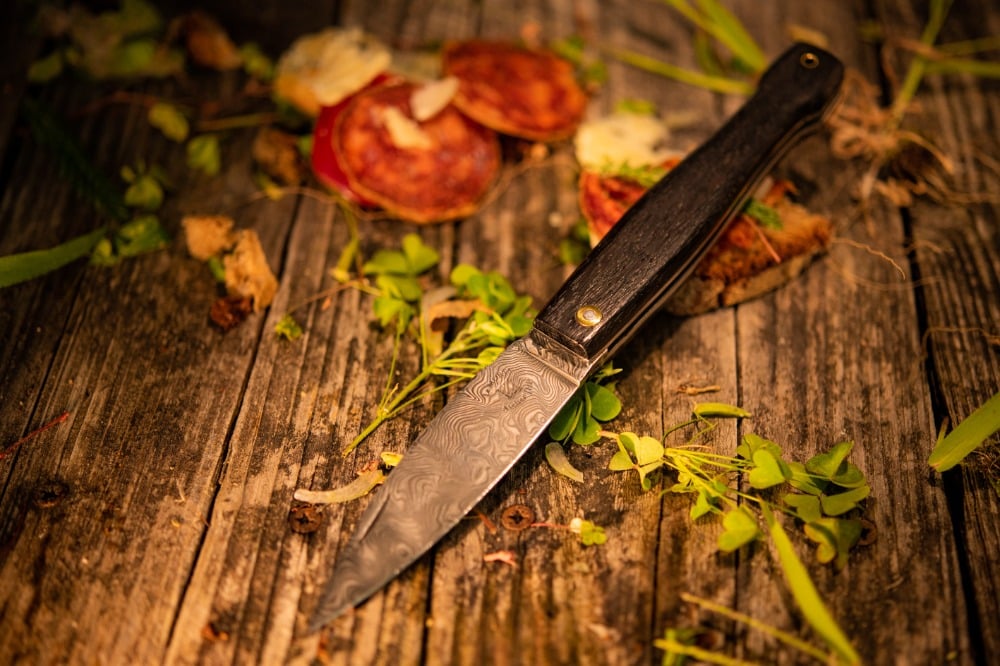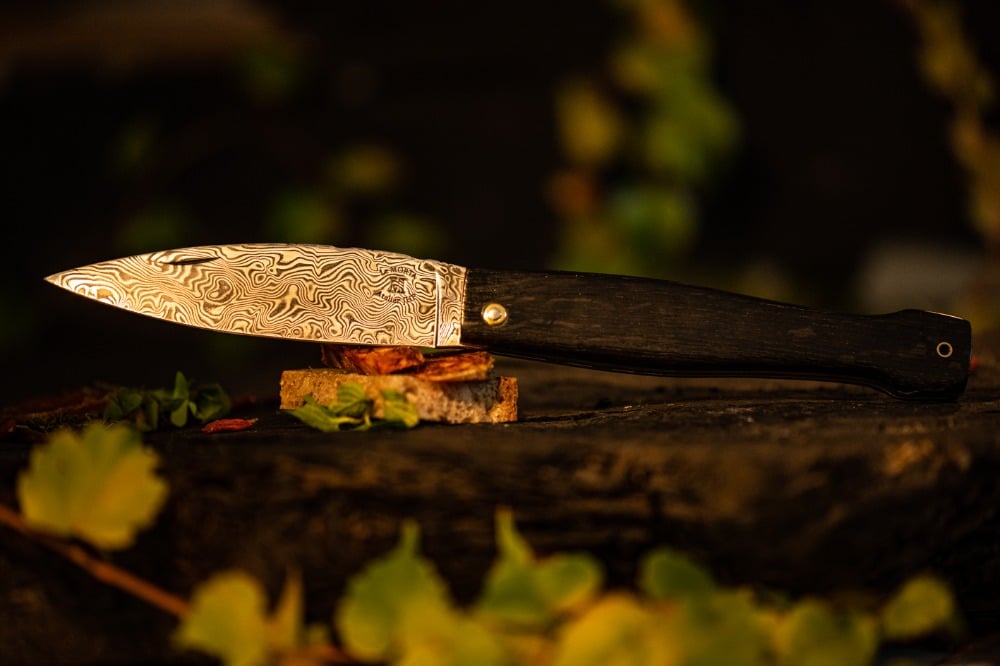Imagine a stunning collection of high-quality knives. When displayed properly, it becomes your personal museum piece. Feeling the wood age in your palm, admiring the Damascus patterns brings joy and pride. “An infinity of passion can be contained in one minute,” Flaubert said. By gifting the perfect knife model to an enthusiast, you’re bestowing upon them a flood of happiness. Choosing the right handle material, the type of blade: it all depends on the personality of the lucky recipient. A knife fan appreciates every detail that makes the object unique and special. We guide you through a sharp exploration of the world of cutlery enthusiasts. Plus, our top tips for organizing your knife collection. Yes, at Morta Knives, we also create words. So what? ????
Knife fan: Essentials for every high-end enthusiast
If you’re a knife enthusiast, you dream of owning the emblematic blades of quality cutlery. Here are some basics you should know before starting a collection.
For an eclectic representation, a knife lover owns:
???? a folding knife;
???? a fixed blade knife;
???? a chef’s knife;
???? a versatile knife;
???? table knives to honor their guests.
Don’t worry, we say “a,” but it also works with several ????
With these categories, the enthusiast covers a wide range of uses.
Indeed, folding knives are cherished by fishermen, adventurers, campers, handymen, and all who wish to be accompanied by a noble fetish object or, simply, by all knife enthusiasts. The folded blade never leaves them.
Tucked in the pocket or backpack, it’s the ideal partner to overcome all obstacles nature puts in your way.
It’s worth noting that fixed blades, safely stored in their sheath or storage case, find their place hanging on a belt or in the universal sports backpack. The Morta case allows for three knives.
How to choose a knife to gift a collector?
To each collector, their knife
The answer lies in the question: who is this collector, a knife fan? Like any gift, it’s thoughtfully chosen according to its recipient.
???? A gastronomy fan will appreciate a chef’s knife.
???? A nature, hiking enthusiast will love a versatile folding knife.
???? A host dedicated to their guests will be happy with beautiful table knives neatly arranged in an elegant box for a prestigious collection.
???? A lover of beautiful creations will fall for Damascus steel.
???? All will be moved if you personalize the knife.
A personalized knife: A uniquely handcrafted creation
Imagine a cutlery creation designed for the future owner. Isn’t that the best way to touch your enthusiast’s heart?
At Morta Knives, you choose:
- the marking (name, first name, nickname, date, message);
- the font style from 5 options;
- three mammoth ivory inlays on the handle (except table knives and Trapper model);
- a blue vulcanized fiber border (table knives, kitchen knives, Brut de Forge, and Damascus);
- engraving of a pictogram from a unique and exclusive selection designed by our friend Nicolas Peyron, an artist from Baulois, for a mini work of art on an art knife. What do you think?
Remember to include the corresponding sheath. By the way, our cases for fixed and folding knives offer two options: blue or black stitching. Personalization, yes or no?
A knife is also an emotion
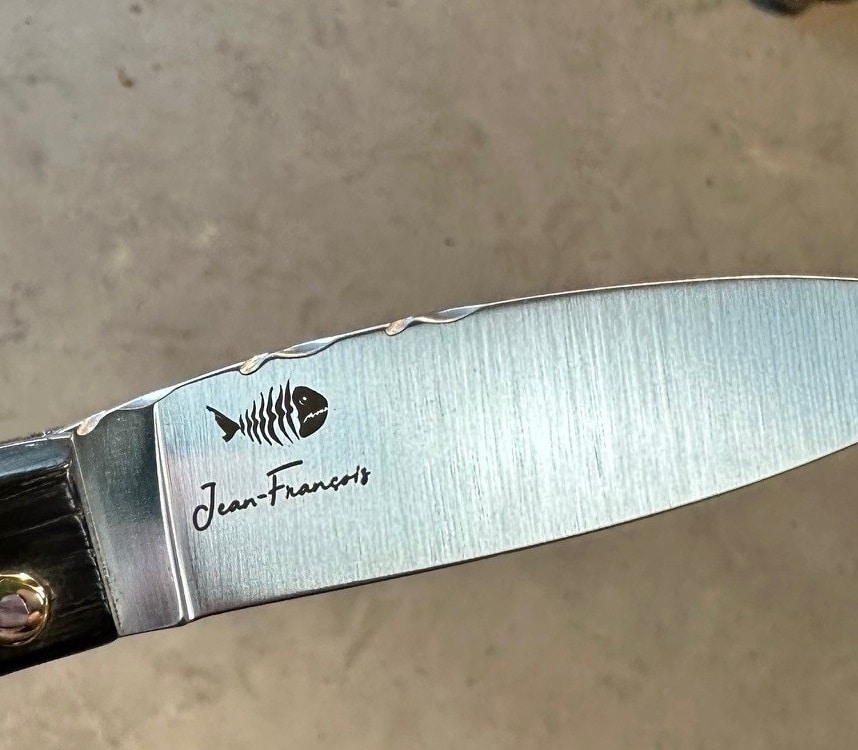
Think about the high symbolic value of the knife, certainly dear to the collector you wish to spoil. Please them with the criterion that truly touches them. Straight to the heart!
???? Are they sensitive to the symbolism of the knife: power and spiritual strength?
???? Will they consider it a fetish object, a lucky charm, because it comes from a loved one?
???? Will they fall for the “I love you, dad” engraved on the handle?
The sentimental value of an object (as seen with family heirloom pieces) goes far beyond its monetary worth. The best knife for a collector is precisely the one that represents your purest intention.
So, of course, if its handle is made of Morta, you’re touching excellence.
???? Did you know…
The most expensive and sharpest knife in the world is the “Gem of the Orient Knife,” crafted by American knifemaker Buster Warenski. Its handle is made of white and yellow gold and is studded with 153 diamonds, and its blade is made of Damascus steel. Its price is estimated at $2.1 million.
Let’s stay humble, let’s be Morta!
Handles for a quality collection
Wood, the premium organic material
A knife enthusiast pays attention to aesthetics and the story the knife tells. The goal is not to accumulate specimens but to have beautiful pieces of artisanal creations.
A wooden handle, a living and organic material, brings warmth, comfort, and reflects the heritage of a region.
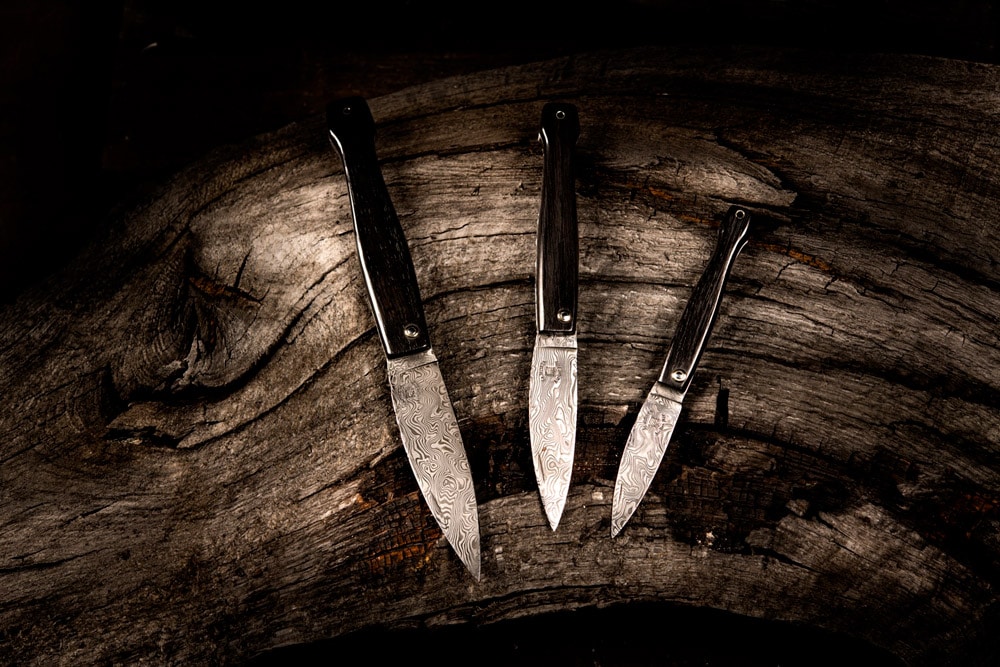
Morta, for its part, is a local wood. Indeed, it comes from the Brière soil where it has lain for 5,000 years. Nourished and protected by the black peat, it has taken on its dark hue and caramel reflections. In the process of fossilization, it becomes polished with use to better fit the shape of the hand.
European woods, on the other hand, offer a wide range of species: boxwood, birch, maple, beech, walnut, olive, and finally, oak.
For collectors who like exotic trees, there are ebony, rosewood, cocobolo, padouk, ziricote, bocote wood, or purpleheart.
Not to forget organic materials of animal origin, such as deer antler, horn, or ivory.
Metals
The most common pure metals in cutlery are:
- aluminum for its lightness;
- copper for its rosy coloration;
- titanium for its strong resistance to corrosion and breakage;
- zinc is less used because it tarnishes over time.
Among the alloys, we find:
- stainless steel (iron, carbon, chrome, and nickel);
- brass (a mixture of zinc and copper), but it remains fragile;
- zamak (zinc, aluminum, and magnesium), but as mentioned, it tarnishes with use.
Japanese cutlery mainly offers knives with metallic handles.
Plastic materials
Plastic handles do not attract collectors, as it is not considered a noble material. Between thermoplastics, elastomers, and thermosets, they interest manufacturers of cheap knives, without added value. A knife enthusiast prefers artisanal items, close to nature and its preservation. The industrial aspect and polluting nature of plastic make it less unique.
Plastic handles are mainly found on industrial and imported knives.
Composites
Composite materials, obtained by combining various materials, offer nuances of coloration. Again, an enthusiast prefers a natural substance, even if composite materials made from different wood species or animal material also exist.
Blades for sharpening your cutlery exploration
Immediately, when we talk about blades, we think of folding knives in comparison to fixed blades. However, exploring the different types of blades is a vast playground.
Damascus Steel: A unique blade for lovers of quality cutlery
We can’t recommend enough the specific beauty of Damascus steel. Achieved through the process of layering multiple steel layers (like puff pastry), it offers an unparalleled and never identical moiré visual effect. Its random patterns make it unique. A remarkable hallmark of your prestige knife, the collector’s must-have.
The Damascus blade is to a knife collection what a pure diamond is to a jeweler’s ornament.
???? Good to know: The Damascus steel used at Morta Knives is stainless. You can clean it with a soft, damp cloth.
Contrary to what its beauty suggests, it requires no special precautions.
Let yourself be tempted by our knives… ✨
Stainless Steels
To prevent the risks of rust and corrosion, cutlers mostly opt for a steel that resists water.
At Morta Knives, you’ll find:
- Sandvik 14c28n steel which allows for a hardness of 59 HRC Rockwell. Cut in Thiers, it offers remarkable sharpness and a proven cutting power;
- X50CRMOV15 stainless steel, composed of molybdenum and vanadium, is highly prized for intensive use.
Raw Forge Steels
At Morta Knives, raw steel (90mcv8 steel) is hand-forged. Rich in carbon, it patinates over time. Gentle but systematic cleaning prevents any corrosion. Fans of beautiful blades appreciate it for the authentic aspect it gains over time.
Let yourself be tempted by our knives… ✨
-

Solid Morta as forged
245,00 € This product has multiple variants. The options may be chosen on the product page -

Mini solid morta as forged
210,00 € This product has multiple variants. The options may be chosen on the product page -

XL Solid Morta as forged
325,00 € This product has multiple variants. The options may be chosen on the product page
Different blade shapes
For your cutlery culture more than to expand a knife collection, here are the various existing blades.
- The broad blade, about 18 cm long, of the butcher knife: the cleaver.
- The straight blade of the skinning knife.
- The thin blade, possibly curved upwards, of the boning or filleting knife.
- The short blade of the stabbing knife (about 15 cm).
- The long and tapered blade of the slicing knife (also known as a slicer or carving knife).
- The thin blade of 18 to 30 cm of the slicing knife.
- The flexible blade of 25 to 35 cm of the ham knife.
- The broad and serrated blade of the fishmonger knife for removing large bones.
- The slotted blade for filleting fish.
- The serrated and slotted blade of the cheese knife.
- The forked blade of the table knife for cheese.
- The cleaver blade of the cheese knife that distributes forces across both handles.
Generally, collectors do not dwell on the different blades of kitchen knives. They focus more on the knife’s use itself or on the emotion that emanates from using it.
Lovers of cutlery: Our best tips for organizing your knife collection
Now that you’ve made up your mind to start your knife collection, here are some valuable tips for a passionate and practical organization.
Remembering your knife purchases
The purchase of your first knife is certainly memorable! But as the collection grows, memories of each acquisition fade. Here’s a simple way to keep a special record for each knife.
Fill out a small card where you list:
- the purchase date
- your supplier (Morta Knives, of course ????);
- the price (no, it’s not necessarily a bad memory);
- a small checklist to tick off: folding knife; fixed blade;
- the usual use of the knife (table knife, kitchen knife, etc.);
- the type of steel that makes up the blade;
- the material of the handle (really, you can use something other than Morta ?????);
- the emotion aroused when you held it in your palm: joy, surprise, fascination;
- if it’s a gift, note the name of the kind soul who had this beautiful idea and the occasion (Father’s Day, Mother’s Day, birthday, Christmas, retirement, etc.);
- add a little souvenir photo.
Any other ideas? Send us your suggestions.
Customer reviews share their emotions.
Organizing your collection: An art form
For a knife enthusiast, as for any other collector, it’s unimaginable to store their treasures haphazardly, at the bottom of a drawer.
???? Clean the blade and handle with a soft cloth suitable for the material after each use. If your handle is made of wood, you can oil it for better maintenance.
???? Prefer a dry place, sheltered from light.
???? Use a knife case, a sheath (or scabbard) for a folding knife, a scabbard for a fixed blade. For daily use, especially in the kitchen, you might opt for a magnetic wall holder or a display stand.
???? Keep your sharpening stone nearby.
Let yourself be tempted by our accessories… ✨
-

Sharpening stone
25,00 € This product has multiple variants. The options may be chosen on the product page -

Case for folding knife
45,00 € This product has multiple variants. The options may be chosen on the product page -

Sheath for folding knife
45,00 € This product has multiple variants. The options may be chosen on the product page -

Sheaths for fixed knives
45,00 € This product has multiple variants. The options may be chosen on the product page -

Knives Storage Roll
125,00 € This product has multiple variants. The options may be chosen on the product page
Knife fan, cutlery enthusiast, lover of beautiful artisanal creations, all the conditions are met to make you the perfect collector. You now have all the (blunt) weapons in hand to enrich your current selection or begin your quest. If it’s for gifting, the path is the same! Here is the gateway: all our knives.
Article passionately written by the sharp pen of Christelle Lorant ????
7 Key Questions About the Article
What types of knives should an enthusiast include in his collection to cover a wide range of uses?
For a knife fan eager to explore the world of cutlery to the full, an ideal collection would include a folding knife for its versatility and practicality, a fixed knife for its sturdiness, a chef’s knife for cooking enthusiasts, a multi-purpose knife for different everyday uses, and table knives to honor guests with elegance.
This selection allows you to discover the many facets of cutlery, from the kitchen to the outdoors, via craftsmanship and the pleasure of entertaining.
How to select the perfect gift for a knife collector?
When giving a knife to a collector, you need to take into account his or her personality, passions and specific needs. For a fan of gastronomy, a high-quality chef’s knife will be a wise choice. A nature enthusiast will appreciate a sturdy, versatile folding knife.
Beautiful table knives, meanwhile, are perfect for a host who loves to entertain. Personalization adds a unique touch, transforming the knife into a truly personal and thoughtful gift.
Opting for quality materials and meticulous workmanship not only guarantees a gift of great value, but also a high-performance, long-lasting tool.
What makes Damascus steel so special and attractive to collectors?
Damascus steel is famous for its unique beauty and moiré patterns, the result of layering and forging several layers of steel.
This age-old technique gives each blade a unique design, making Damascus steel a preferred choice for collectors looking for a knife that is both aesthetically pleasing and functional.
In addition to its visually captivating appearance, Damascus steel offers excellent corrosion resistance and a long-lasting edge, making it an optimal choice for those who value performance as much as style.
Which handle materials are preferred by knife enthusiasts, and why?
Knife collectors prefer natural materials for handles, such as wood, Morta or mammoth ivory, for their beauty, history and comfortable grip.
Wood offers a variety of species, each with its own color, grain and history, reflecting the heritage of a region or the rarity of a species.
Morta, a fossilized wood, is prized for its dark hue and unique reflections. These materials add an aesthetic and emotional aspect to each knife, making it not only a collector’s item, but also a piece of history to be held in the hand.
How do you maintain and organize your knife collection?
The care and organization of a knife collection requires special attention to preserve its condition and value. After each use, we recommend cleaning the blade and handle with a soft, suitable cloth, oiling wooden handles to protect them, and storing knives in a dry, dark place.
When it comes to organization, the use of specific kits, cases or display stands not only protects knives, but also enables them to be displayed aesthetically. Keeping an up-to-date record of each acquisition, with details such as date of purchase, supplier, price and photo, enriches the collecting experience and preserves the history and passion surrounding each piece.
Why is customizing a knife so important for collectors?
Personalizing a knife transforms an object into an even more special and intimate souvenir. Engraving a name, a date or a personal message on the handle or blade of a knife gives this object incomparable sentimental value.
It can symbolize a relationship, a milestone event or simply reflect the collector’s personality.
Personalization options, such as choice of materials, inlays, or even artistic engravings, create a knife that is not only a tool or collector’s item, but also an emotional heirloom and a reflection of its owner’s individuality.
How do aesthetics and functionality come together in the choice of materials for a knife?
When designing a knife, aesthetics and functionality are intimately linked, particularly in the choice of materials. Damascus steel, for example, offers a perfect balance between visual beauty and cutting performance, thanks to its unique patterns and durability.
Handle materials, such as noble wood or Morta, add tactile and visual appeal while ensuring a comfortable and secure grip. Choosing the right material means not only opting for an attractive design, but also guaranteeing optimum efficiency and resistance for the intended use, whether for everyday tasks or more demanding situations.


